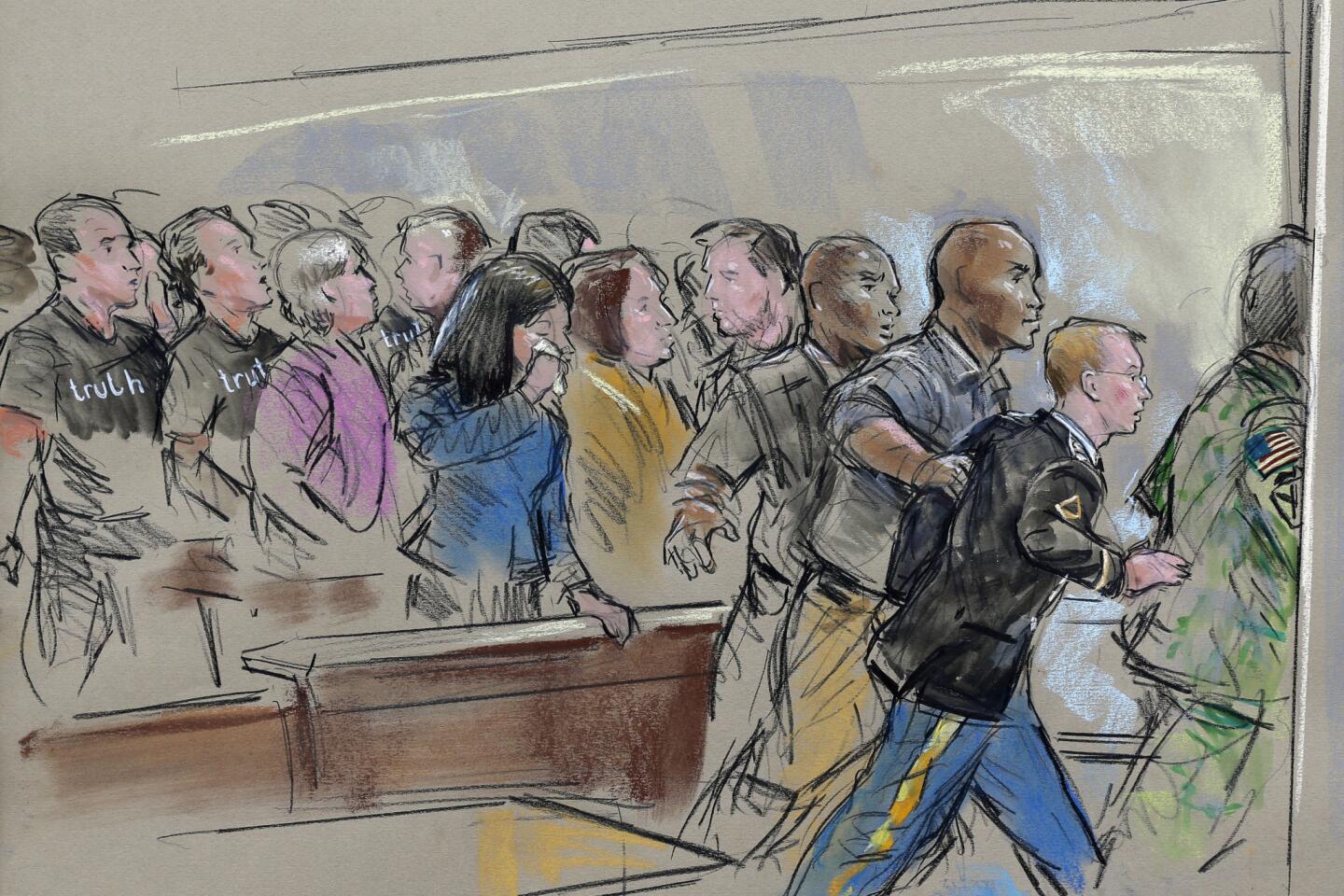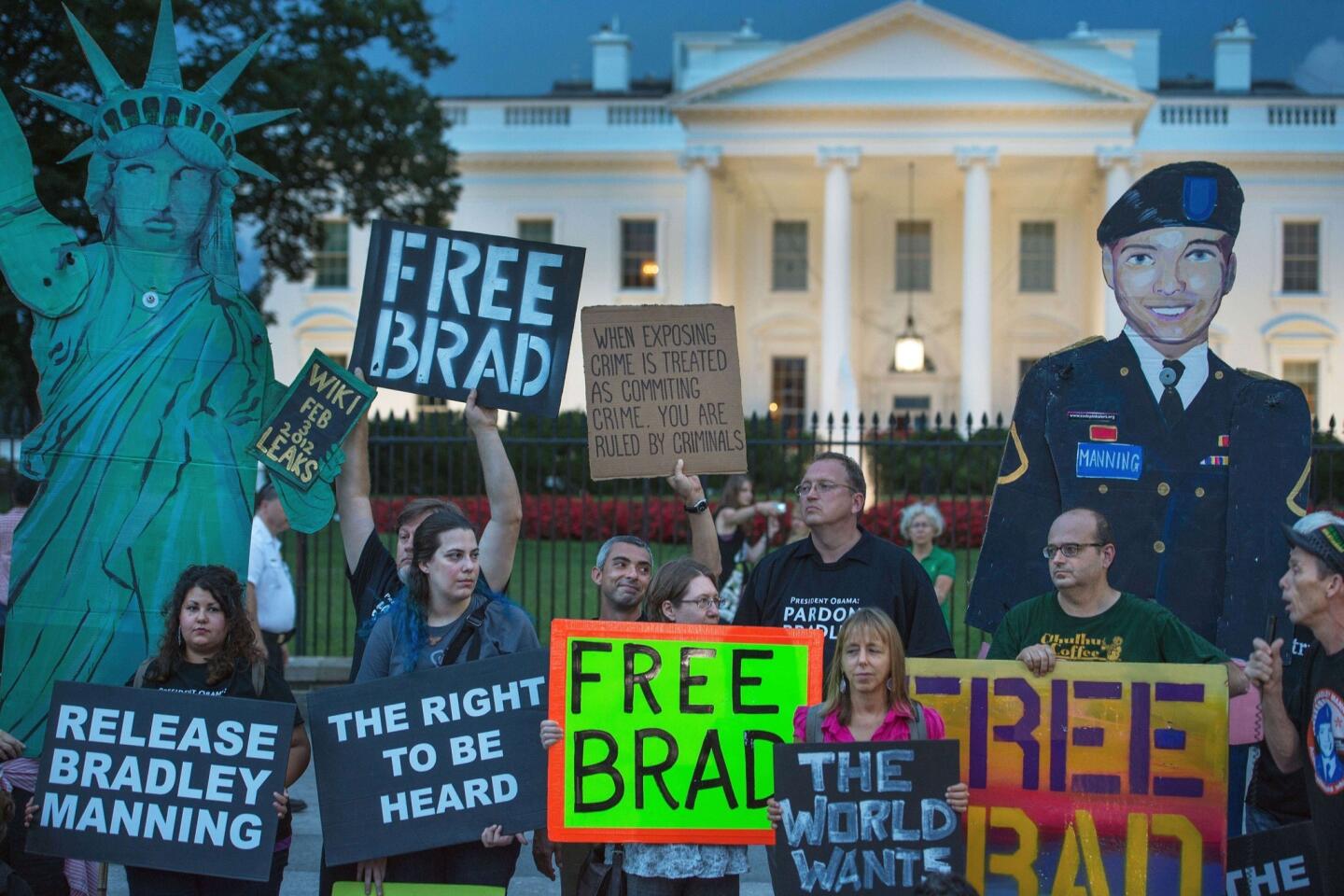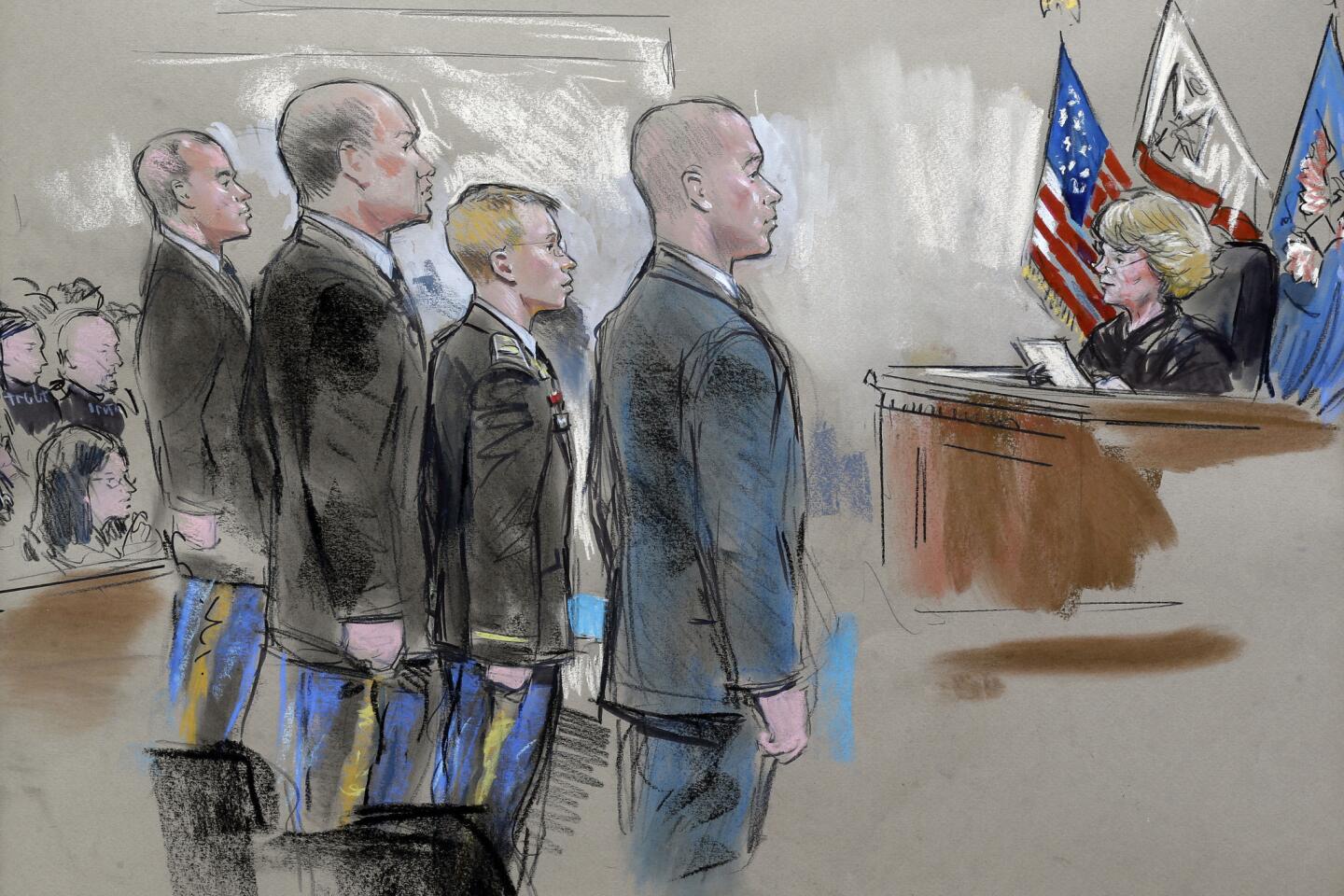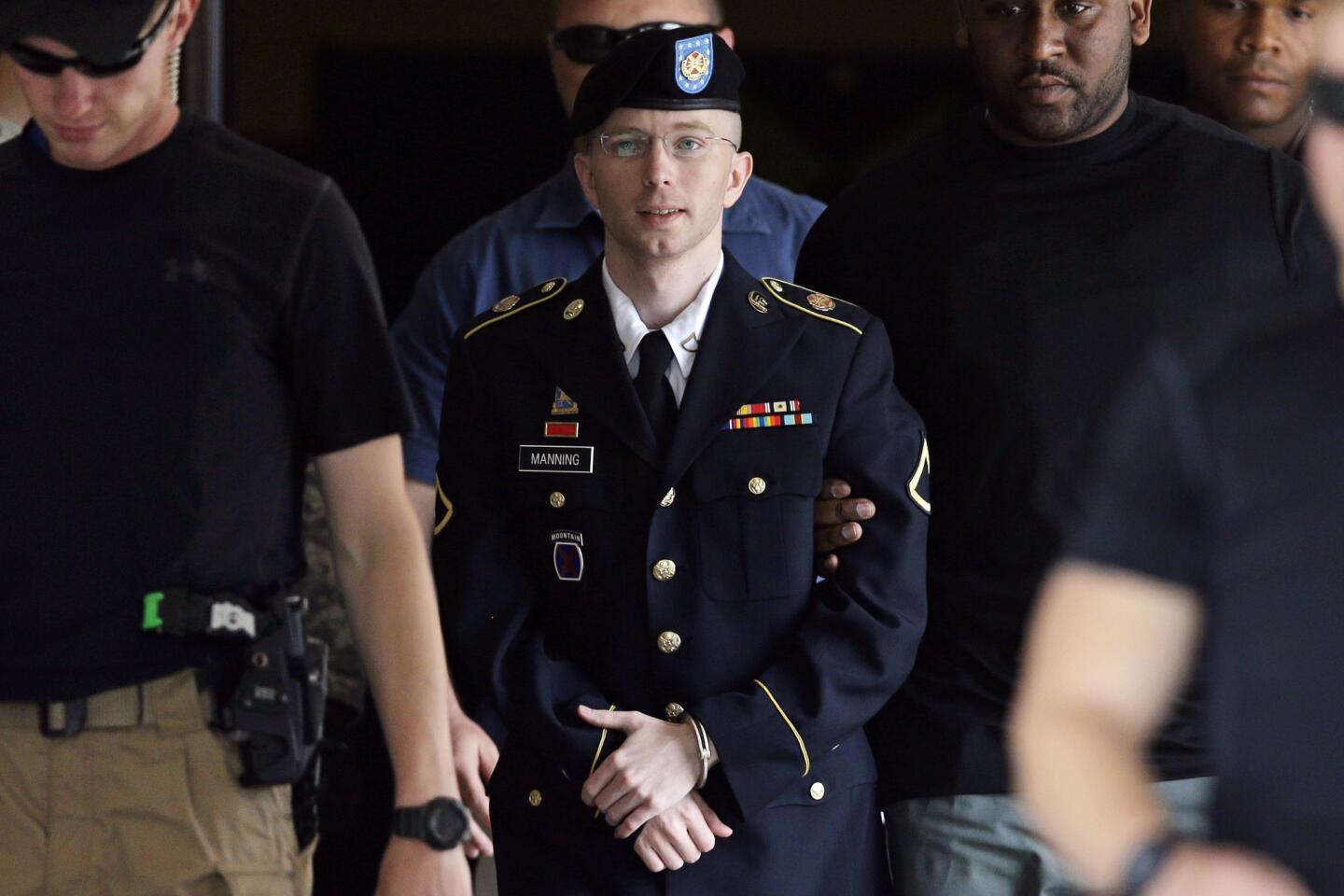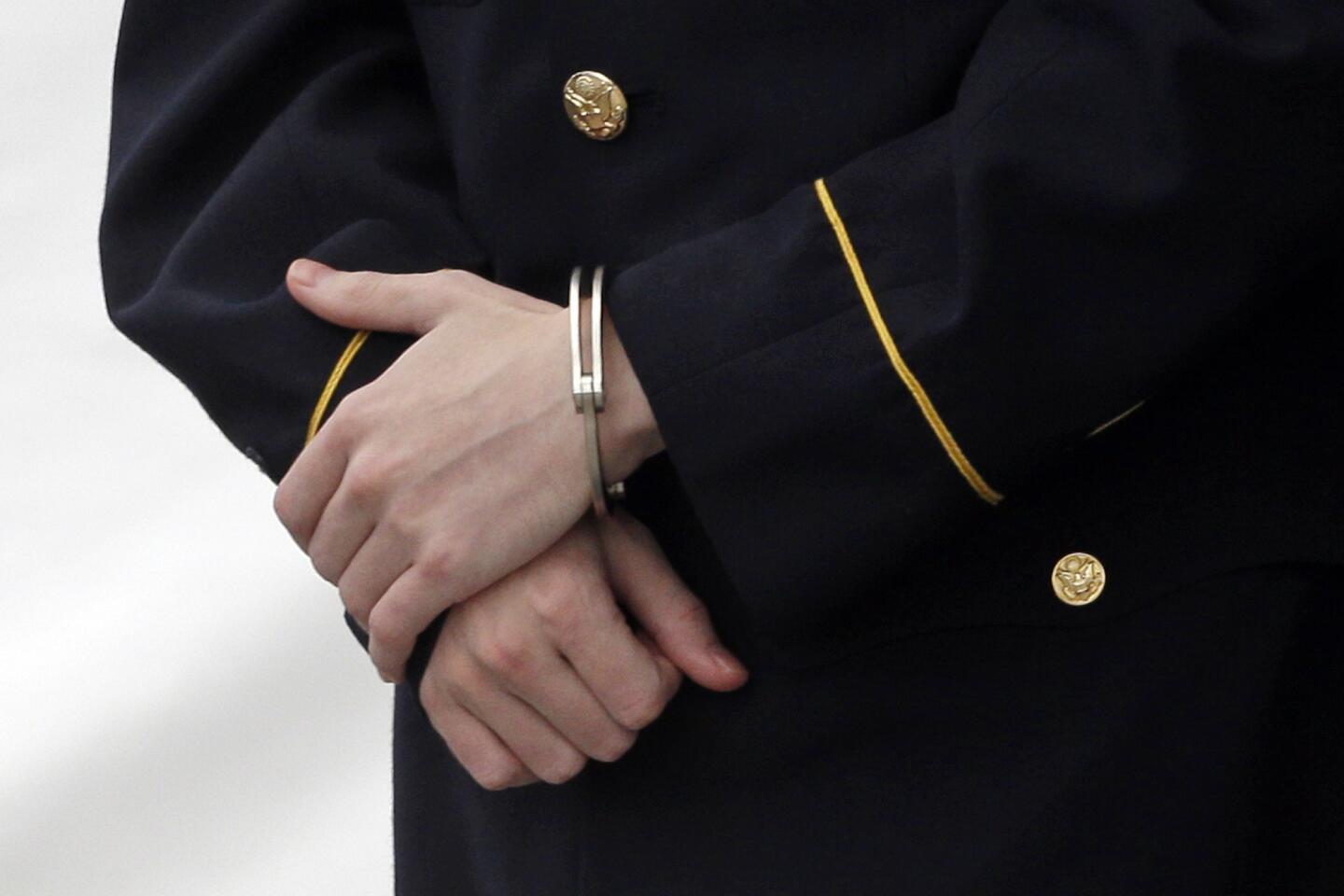New Snowden leaks reveal problems at NSA
WASHINGTON -- The disclosure of a top secret internal audit that shows the National Security Agency has overstepped its legal authority repeatedly since 2011 is likely to further erode public trust in the beleaguered intelligence service and spur new calls to constrain its authority to conduct surveillance on Americans.
Several members of Congress reacted sharply to the leaked NSA audit, which documents 2,776 violations of privacy rules or court orders, mostly involving unauthorized collection of data on Americans or eavesdropping on foreign intelligence targets who entered the United States.
“The American people rely on the intelligence community to provide forthright and complete information so that Congress and the courts can properly conduct oversight,” Sen. Patrick Leahy, (D-Vt.), who chairs the Judiciary Committee, said in a statement. “I remain concerned that we are still not getting straightforward answers from the NSA.”
PHOTOS: 2013’s memorable political moments
Rep. Nancy Pelosi (D-Calif.), the House minority leader, called the latest signs of problems at the NSA “extremely disturbing.”
“Congress must conduct rigorous oversight to ensure that all incidents of non-compliance are reported to the oversight committees and the FISA court in a timely and comprehensive manner, and that appropriate steps are taken to ensure violations are not repeated,” she said.
The internal report, one of several that former NSA contractor Edward J. Snowden provided to the Washington Post, said the violations appeared largely inadvertent, the result of technical or human error. It documented no instances of an NSA employee setting out to skirt the law.
Of the 2,776 violations cited in the May 2012 audit, 1,904 involved cases in which a foreigner whose cellphone was being wiretapped entered the United States, where court warrants are required for most eavesdropping.
In other cases, typos or other technical mistakes led to unauthorized collection of information on Americans.
PHOTOS: Team Obama, where are they now?
In one case, an NSA analyst confused the international telephone country code for Egypt, 20, with the area code for Washington, D.C., 202. As a result, according to one document, logs were improperly collected on a “large number” of calls.
Another document instructed NSA analysts to carefully limit the information they provided to the Foreign Intelligence Surveillance Court, which meets in secret to review and authorize NSA requests.
“While we do want to provide our F.A.A. overseers with the information they need, we DO NOT want to give them any extraneous information,” the document said.
The F.A.A. is a reference to a law passed in 2008 that granted new authorities to the NSA in exchange for regular audits from the Justice Department and the Office of the Director of National Intelligence, and period reports to Congress and the surveillance court.
Follow Politics Now on Twitter and Facebook
Twitter: @kendilanianLAT
More to Read
Start your day right
Sign up for Essential California for news, features and recommendations from the L.A. Times and beyond in your inbox six days a week.
You may occasionally receive promotional content from the Los Angeles Times.
